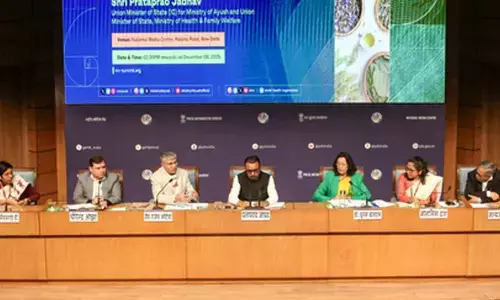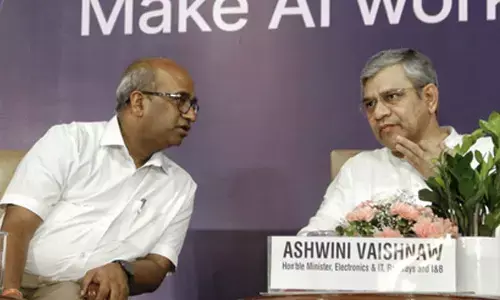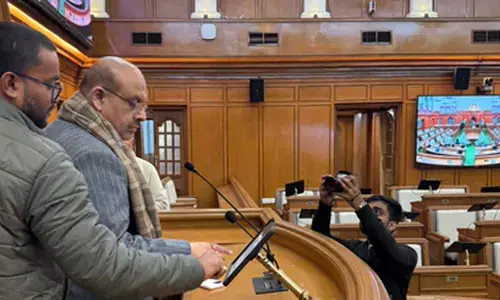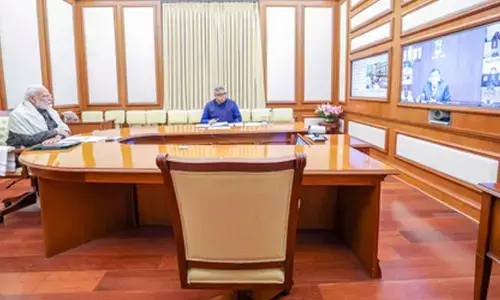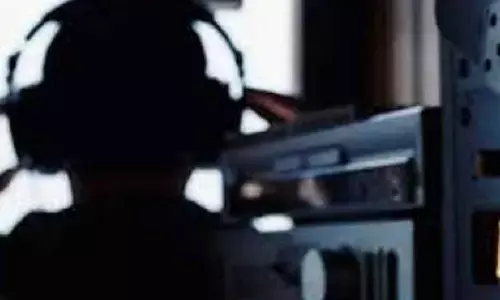Anti-CAA Protests: Hundreds detained on single day in pan-India protest
Share :
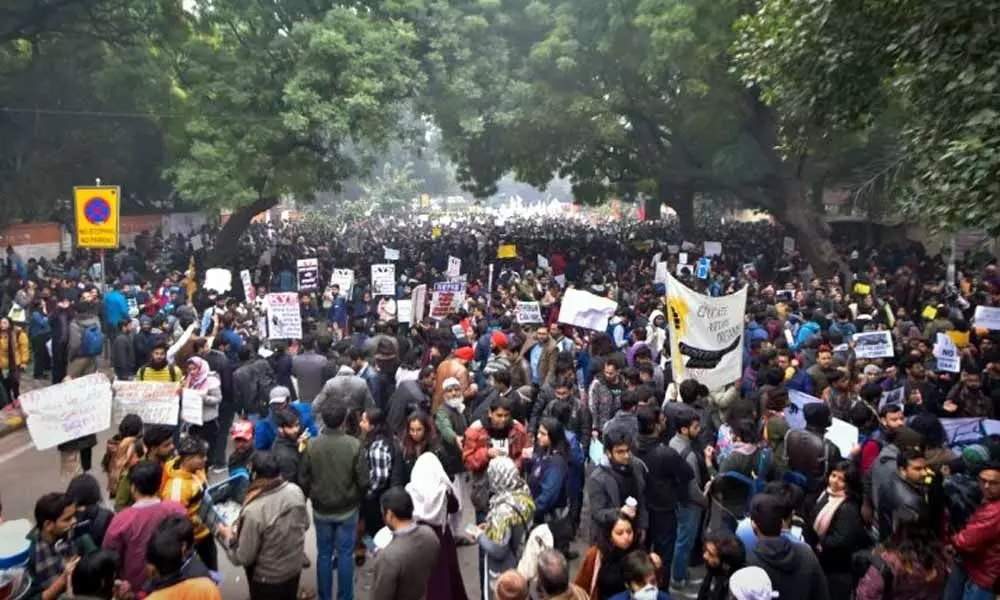
Defying unprecedented prohibitory orders across regions, simultaneous protests broke out on Thursday in multiple cities against the newly amended citizenship law...
Defying unprecedented prohibitory orders across regions, simultaneous protests broke out on Thursday in multiple cities against the newly amended citizenship law, prompting authorities to detain a large number of activists and students and clamp down on mobile services in parts of the national capital and other states.
While the protests remained largely peaceful at most places with the agitators depending on slogans and placards to express their opposition to the new law and what they called 'barbaric police action' against students of Jamia Millia Islamia and Aligarh Muslim University, there were reports of violent clashes and arson in Uttar Pradesh and Bihar. Rail and road traffic were hit across several states.
Barricades by police in and around the national capital, closing of Delhi Metro gates at several stations and an unprecedented suspension of mobile voice, messaging and internet services in parts of Delhi added to the woes.
Left leaders Sitaram Yechury, D Raja, Nilotpal Basu and Brinda Karat, activist Yogendra Yadav and historian Ramchandra Guha were among those who were detained for taking part in the anti-citizenship law stir for defying prohibitory orders.
The law has been amended to enable the grant of speedier citizenship to non-Muslim refugees from Pakistan, Bangladesh and Afghanistan if they had to leave their respective countries due to religious persecution.
Despite raging protests, the ruling BJP and the government maintained there won't be any rethink on implementation of the new law.
Slamming the opposition for protesting against the new law, BJP working president J P Nadda asserted on Thursday that the CAA will be implemented and that the National Register of Citizens will also be brought in.
CrPC Section 144 was imposed by Delhi Police in Red Fort area, but that did not deter scores of students and activists from converging there to raise their voice against the Citizenship (Amendment) Act and the police crackdown in JMI and AMU.
#WATCH Delhi: Protesters sing 'Saare jahaan se achha, Hindustan humara' at Jantar Mantar. #CitizenshipAmendmentAct pic.twitter.com/oZNL9XgSTH
— ANI (@ANI) December 19, 2019
The agitators were put into buses in a bid to clear the Red Fort area. Holding placards and shouting slogans, the protesters allowed themselves to be escorted to the buses.
"We are requesting the protestors to please apply for the designated place for the protest. In the non-designated places, public face problems and many emergency services get affected," Deputy Commissioner of Police (Central) Mandeep Singh Randhawa said while urging people to cooperate.
A large number of protesters converged near Sunehri Masjid in Old Delhi, after being pushed back by police from the historic Red Fort. They were heard raising slogans of 'Hum Honge Kamyaab', 'Inquilab Zindabad' filled the air.
Slogans of 'CAA Se Azaadi and NRC Se Azaadi' were also raised by the crowd, which included locals from Old Delhi and East Delhi and a large number of students.
A large number of protestors gathered at the Jantar Mantar as well.
Several companies in the NCR region also asked their employees to work from home and cautioned them against joining demonstrations.
Guha, who was detained in Bengaluru for defying prohibitory orders, said it was "absolutely undemocratic" that police were not allowing even a peaceful protest, which is the democratic right of citizens.
The Communist Party of India too staged demonstrations in Bengaluru against the citizenship law and the proposed nation-wide NRC.
Protests were also held at several other places in the state, including in Hubballi, Kalaburagi, Hassan, Mysuru and Ballary where police detained demonstrators who violated prohibitory orders.
In UP, while a state transport bus was set on fire in Sambhal area of the state, while violent protests broke out in capital Lucknow too when a mob pelted stones and torched vehicles parked outside a police post.
DGP O P Singh said police had to fire tear-gas shells to control the situation in Madeyganj area, while nearly 20 people have been taken into custody.
The opposition Samajwadi Party and Congress legislators held their protest at the legislative assembly complex in Lucknow.
AMU teachers held a silent march opposing the new law in Aligarh.
"We feel that we are fighting for the idea of India as envisaged by the founding fathers of the nation. This is not a struggle for the rights of any particular community," AMU Teachers Association secretary, Professor Najmul Islam told PTI.
Hundreds of AMU students protesting against the amended Citizenship Act clashed with police on Sunday at a campus gate, leaving 60 injured. After the protest, the adminstration had announced the closure of the university till January 5.
In Bihar, members of Left-wing student organisations squatted on railway tracks at Rajendra Nagar Terminus early in the morning, while hundreds of activists of Jan Adhikar Party (JAP), floated by controversial ex-MP Pappu Yadav, burnt tyres on an adjacent road.
They also vandalized an ambulance which tried to make its way through the road and heads towards a residential locality nearby.
In Jehanabad, which had been a stronghold of the ultra-Left movement in Bihar, CPI(ML) activists disrupted traffic on national highways.
In Maharashtra, the Congress, NCP and various other parties have formed a front called 'Hum Bharat Ke Log' for a protest rally at the August Kranti Maidan in Mumbai, but Shiv Sena has kept itself out of this.
"The Constitution, drafted by Dr B R Ambedkar, is being violated and is under attack. This is the reason that the entire country has chosen this day to condemn the unconstitutional and divisive laws of the BJP government," the front said.
Protests in West Bengal, Assam and Meghalaya, which were at the centre of the stir initially, were largely peaceful.
Dozens of CPI(M) activists staged a protest in Jammu shouting slogans for immediate revocation of what they called a "discriminatory and undemocratic law".







